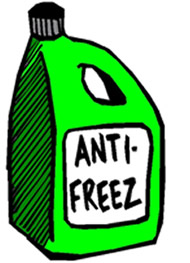
We all know of the importance of donating blood from a human medicine perspective; collecting and maintaining a blood bank ensures that there will be an adequate supply of blood available when it is most needed, for instance during surgery or following an accident. But what about a blood donation program for our pets? After all, they undergo many of the same medical procedures as we do; is there a program in place for them? It turns out that there is, and certain organizations are looking for you and your pet to help out and donate blood.
While there isn’t a national blood donor organization for animals as there is with humans, there are several smaller organizations that exist across the country. Several of the veterinary colleges have one in place, so if you happen to live close to a veterinary school, that would be a great place to check out. There are other organizations as well, including the Canadian Animal Blood Bank, and Lifestream Animal Blood Bank. Check out their websites for more information about locations and donor details. These organizations all offer some type of incentive package as a way of encouraging you to bring in your pet; the packages will vary, but many will include a free physical exam, free blood profile test, and free heartworm testing. In return, the organization will require you to commit to bringing in your pet every few months for the actual blood collection (lengths vary with the organization, but the average seems to be about every three months).
Who qualifies to be a blood donor? There is no hard and fast rule, but the trend seems to be for dogs 50 lbs and over, between 1 – 7 years of age, free from any diseases, and relatively well-mannered. This last point is important, because your dog will need to be able to sit still for close to 10 minutes while the collection is occurring. The blood donor organization will go over the specific criteria that they have for their program, and it could vary from what was mentioned above. Cats are also eligible to be blood donors, although feline donor programs are not typically as popular, as blood collection from a cat is usually trickier than from a dog. That being said, cats still have the same need for blood as dogs do, so if you have a well-mannered and easy-going cat, it might be worth contacting whichever donor organization is nearby and asking if they have a need for donor cats.
While not identical, the canine blood type system is somewhat similar to the human system. There are specific blood types based on antigenicity (the ability to stimulate the production of antibodies). Some blood types can act as universal donors, while others act as universal recipients. The system is called DEA (Dog Erythrocyte Antigen), and there are eight major blood types. As with humans, DEA types that are negative for antigens (any substance that stimulates an immune response in the body) can act as universal donors, as there is a decreased risk for a transfusion reaction with these types when compared to animals that have DEA positive blood types. The most important blood type is DEA 1.1, and dogs that are DEA 1.1 negative can donate to dogs that are either DEA 1.1 negative or positive; these dogs are generally considered to be universal donors. Again, as with humans, the universal donor blood type is not the one that is the most common, so dogs that are DEA 1.1 negative are always in demand. Fortunately, this blood type is more prevalent in certain breeds, so it is somewhat easier to predict. Breeds that are commonly DEA 1.1 negative can include Greyhounds, Boxers, German Shepherds, Dobermans, Great Danes, and certain breeds of hounds. It is worth noting that while the above list was for purebred dogs only, this doesn’t exclude mixed breed dogs from being blood donors; it simply means that blood type trends won’t be as easily identified.
So, if you have a healthy dog (or cat) that fits the above criteria, it might be worth looking into one of these blood donor programs for animals. One donation can help up to four animals, and you never know if it is an animal you know that might be in need of blood next.
 Dogs :: Four Basic Commands That Your Dog Need to Learn (Page 1 of 2)
There are certainly lots of factors for proprietors to
Dogs :: Four Basic Commands That Your Dog Need to Learn (Page 1 of 2)
There are certainly lots of factors for proprietors to
 Pet Health Insurance
Nunya Undergoing Radiation Therapy (Not Inexpensive!)
Pet Health Insurance
Nunya Undergoing Radiation Therapy (Not Inexpensive!)
 TPLO? TTA? Tightrope? Fishline? What Does My Dog Need?
Cranial cruciate ligament (C
TPLO? TTA? Tightrope? Fishline? What Does My Dog Need?
Cranial cruciate ligament (C
 Winter Safety For Dogs Part 1 ?The Dangers of Antifreeze
The Dangers of Antifreeze For Your Dog
With colder weather
Winter Safety For Dogs Part 1 ?The Dangers of Antifreeze
The Dangers of Antifreeze For Your Dog
With colder weather
 Clipping your Pet’s Nails
Clipping your Pet’s Nails
Clipping your Pet’s Nails
Clipping your Pet’s Nails
Copyright © 2005-2016 Pet Information All Rights Reserved
Contact us: www162date@outlook.com